

The Next Generation of Multifamily Maintenance Technicians: A Tale
of Wrenches and Wisdom
Author: Chris Caramanica
Podcast Host: Beyond the Work: Tales in Multifamily
Maintenance

Once upon a time, in the land of multifamily properties, there was a group of unsung heroes They were the knights in shining polos and khakis, the warriors with wrenches, the wizards of wiring, the sorcerers of painting - they were the multifamily maintenance professionals
The Current State of Affairs
According to the NMHC 2023 National Multifamily Industry Compensation Survey, data was submitted for over 92,000 employees across 128 leading apartment industry companies These professionals range from top executives to leasing consultants But let's focus on our maintenance maestros, the backstage crew that keeps the show running smoothly
The Highs and Lows

Now, let’s talk numbers. The multifamily industry is a mixed bag when it comes to salaries. On one hand, we have top division executives basking in the glory of an average base salary of $390,400. On the other hand, we have our hardworking groundskeepers and porters, who, despite their crucial role, have the lowest median base compensation of all multifamily positions at $32,900.
And what about our maintenance engineers and technicians? Their median base salary ranges between $41,000 and $50,300 It’s can be a tough gig, but someone’s got to do it!
Training the Next Generation
So, how do we ensure that the next generation of maintenance technicians is ready to take up the mantle? Well, it’s not like we can just wave a magic screwdriver and poof - instant maintenance professional No, it takes time, training, and a whole lot of patience
Firstly, we need to make sure that our future technicians understand the importance of their role They’re not just fixing leaky faucets and changing light bulbs They’re ensuring the safety and satisfaction of our residents They’re the superheroes who swoop in to save the day when disaster strikes. And yes, in this context, a clogged toilet counts as a disaster, we know it's a disaster to our residents.
Secondly, we need to provide them with the necessary training and resources. This includes hands-on experience, theoretical knowledge, and perhaps a few war stories from the seasoned pros. After all, nothing says ‘welcome to maintenance’ like a good old tale of wrestling with a rogue radiator.
Lastly, we need to show them that their hard work is appreciated This could be through competitive salaries, benefits, or simply a heartfelt ‘thank you’ at the end of a long day Remember, a happy technician is a productive technician!
Conclusion
In the world of multifamily properties, maintenance professionals are the heart and soul of operations They’re the ones who keep everything running smoothly, often without any recognition or fanfare So, here’s to the multifamily maintenance professionals - the unsung heroes, the knights in shining polos and overalls, the warriors with wrenches And here’s to training the next generation, who will carry on this noble tradition May their wrenches be mighty, and their polos and khakis forever shiny!!
Multifamily Collective | Mike Brewer
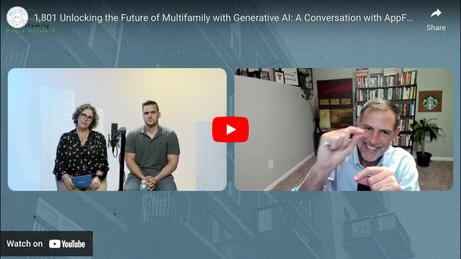


o d c a s t H i g h l i g h t s


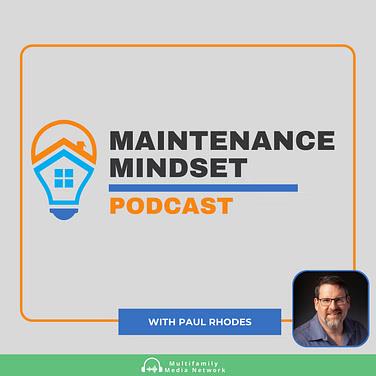

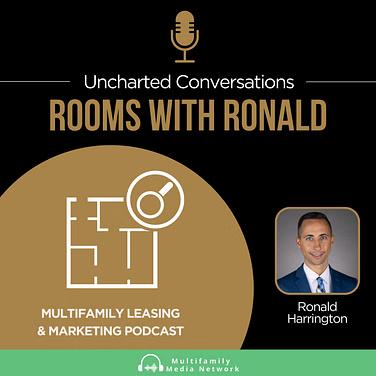
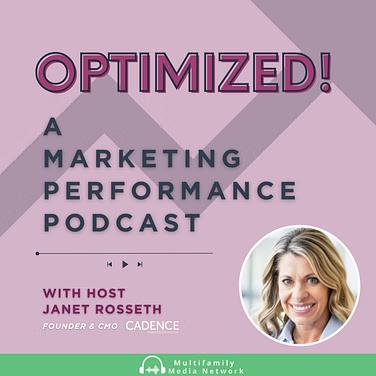
P o d c a s t H i g h l i g h t s
Multifamily has a Review Volume Problem
Author: Jake Hughes, Director of Marketing Company: Widewail
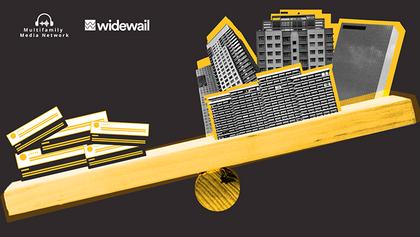

The voice of the satisfied resident is silent, hidden from the view of your prospects. But this is fixable. The average community generates 1.59 Google reviews per month. (Data source: Widewail Multifamily Reputation Index) Automotive averages 9x that volume Longo Toyota, a California dealership, averages 600+ Google reviews per month Over 1,500 dealerships in the U S average more than 50 monthly reviews.
Yes, automotive and multifamily have several obvious differences Automotive has a sizable advantage in one key category: opportunity Opportunity is 400 new vehicle sales each month Opportunity is an endless flow of 3,000 service appointments each month Opportunity is a customer base that comes back for a new service experience every 6 months
Must be nice. Must be nice. BUT…multifamily can narrow that gap. It can fix its review volume problem. Here’s how: Let’s start with some benchmarks
On average, the typical community has generated 1 59 Google reviews per month in the last 12 months The elite, the cream of the crop, the top tier of the industry only does 6-7 Google reviews per month You have your target. (I’ll let you shave my head if you hit 10). The wonderful detail of review volume is that it's positively correlated with ratings.
Last year, we analyzed a few million client reviews and found that businesses with more reviews on a monthly basis had higher ratings Our theory? More reviews mean a better representation of your resident base, which leans towards being satisfied So, I want you to shift your perspective a little bit As a marketer, you cannot ultimately control how many reviews are posted. However, you can control creating opportunities and capitalizing on those opportunities.
To get started, operators need to identify the resident life cycle stages with the highest activity levels: tours and maintenance requests
Short-Term Competitive Advantage
Tours are the lowest-hanging fruit, so let’s start there. Currently, tour reviews account for only 5.85% of all reviews in the Multifamily Reputation Index, with an average rating of 4 18 stars, the highest of any of the life cycle stages
Let’s take a look at all of the average star ratings per lifecycle stage:
If you’re not asking for reviews after a tour, take this as my official recommendation: start now.
A tour is 100% a “reviewable event.” It’s a material interaction with your community. You invest a lot in the tour experience, so build a reputation on that positivity early in the resident lifecycle
The catch: it won’t be long before the industry figures this out After all, it’s a relatively simple win High volume + high ratings = better reputations
A solid tour review generation strategy will likely become table stakes soon, offering no competitive advantage
Lasting Competitive Advantage
In my opinion, the lasting reputational standouts in the upcoming ~24 months will leverage maintenance reviews. Maintenance is the true winner. Why? Because it’s hard. But it’s also high volume.
Let’s dig into some data to support my claim. Maintenance is the number one cause of negativity, mentioned in 34% of negative reviews. The average maintenance review is rated 2.89 stars.
The sentiment surrounding maintenance skews negative, but remember, every portfolio deals with similar negativity You don’t need 5 stars; you just need to outperform industry averages by a healthy margin
We think about improving your reputation from two sides simultaneously: maximizing positivity while minimizing negativity You won’t be able to eliminate negativity in maintenance, but you can reduce it below the levels of your competitors
That said, maintenance drives positivity in a few areas Maintenance staff is the #3 most often mentioned topics in positive reviews While maintenance issues are generating a lot of negative feedback, the people involved are a leading cause of positive outcomes
During renewal, positive mentions of maintenance occur 80% more often than the benchmark. This suggests when maintenance is well-regarded, it’s a significant driver of renewals.
Opportunity and Advantage
Somebody, soon, will figure out how to build a positive reputation with maintenance; the pieces are there. And when it does happen, that portfolio will position itself in a place that is tough for the competition to reach
But first, take the easy win
Ask for reviews after tours to boost review volume and ratings With that process in place, it's time to take on maintenance reviews
Chadwell Supply | R410A to A2L Questions Answered
The federally mandated shift away from R-410A refrigerant has begun. As of January 1, 2024, production was reduced by 40% for all HFC refrigerants, including R-410A. Here’s what you need to know to make sure your properties and maintenance teams are fully prepared for what happens next.
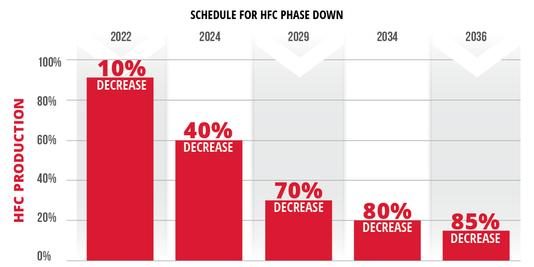
While this reduction is a phase down, not a phase out, the supply of R-410A and availability of related equipment will be significantly reduced. As this supply decreases, refrigerant and equipment costs will increase This change will have significant impacts on multifamily properties at every level of the organization Managers and support teams should review their properties now to determine
when and how they will replace their current equipment. New equipment and tools may need to be purchased. Maintenance teams will need training on how to safely handle and store the new refrigerant, and some technicians may need refreshers on how to safely recover and store legacy refrigerants. As costs continue to rise, refrigerant recovery will become increasingly important.
Whythisishappening
TheUnitedStatesEnvironmentalProtectionAgency(EPA)hasenactednewregulationslimitingcertain refrigerants TheAIMActauthorizestheEPAtoreducetheproductionofhydrofluorocarbon(HFC) refrigerantsthathavehighGlobalWarmingPotential(GWP).Refrigerantsinthisphasedowninclude,but arenotlimitedto,R-410A(airconditioners,heatpumps,PTACs,mini-splits),R-134A(commercial refrigerators),andmanydrop-inreplacementsforR-22
Safe,reliablereplacements
WhenmanufacturersbeganlookingforthebestrefrigerantoptionstomeetthenewGWPstandard,A2Ls weretheclearchoice.OntheASHRAEscale,A2Lrefrigerantsareratedasflammablewithrelativelylow flamepotential.Whenhandledcorrectly,usingtheproperequipmentandtools,A2Lrefrigerantsaresafe andreliable
A2LshaveamuchlowerGWPrating,andtheyhavebeeninwidespreaduseinEurope,Asia,andAustralia formanyyears.Forexample,theA2Lrefrigerant,R-32,hasbeeninstalledinmorethan230million systemsinmorethan130countriesaroundtheworld
Important deadlines
Equipment that uses R-410A can no longer be manufactured or imported after December 31, 2024. The installation deadline for R-410A equipment is December 31, 2025. Many suppliers are currently well stocked, but this will not last, as manufacturers will begin re-tooling their factories well before the end of 2024. Every supplier will reach a “while supplies last” tipping point. Between now and then, the cost for 410A and related equipment will increase significantly.
How to prepare
Chadwell Supply is producing several resources to help multifamily MRO teams stay up to date. Read in-depth articles at “ChadwellSupply.com/pk-hvac” and join the ongoing conversation at The MRO Show,
GWP measures a refrigerant’s environmental impact as a greenhouse gas. The new limit for residential HVAC refrigerant is under 700 GWP. A2L refrigerants, which offer similar operating characteristics to legacy refrigerants, are below the 700 GWP threshold and more energy efficient than R-410A.
Transforming Maintenance Operations | How AppWork Enhances Efficiency, Satisfaction,
and
ROI in Multifamily Properties
Author: Dani Black, CRO AppWork

Effective maintenance management is crucial for both resident satisfaction and property performance. However, many property managers struggle with common challenges such as inefficient communication, slow response times, and inconsistent service quality These issues can lead to increased vacancy rates, lower resident retention, and a negative impact on a property’s bottom line AppWork, a leading maintenance management platform, addresses these challenges head-on by providing a comprehensive suite of tools designed to enhance communication, streamline operations, and improve overall financial performance.
The Communication Challenge in Maintenance Operations
One of the most significant hurdles in multifamily maintenance is communication Maintenance technicians often face difficulties when trying to reach residents Caller ID blocks, unanswered calls, and ignored voicemails are common issues that can slow down the service process and create frustration for both residents and technicians. This breakdown in communication can lead to delays in resolving maintenance issues, resulting in decreased resident satisfaction and potentially negative reviews. AppWork solves this problem by leveraging additional communication methods, particularly text messaging and email With AppWork, maintenance teams can bypass the traditional challenges of phone calls and voicemails by communicating directly with residents through text messages and emails This ensures that residents are always informed about the status of their work orders, from initial scheduling to completion The result is a more transparent, efficient, and satisfying experience for residents, who are kept in the loop every step of the way.
Streamlining Maintenance Operations for Greater Efficiency
Beyond communication, the efficiency of maintenance operations is a critical factor in a property's success Inefficient processes, such as poorly managed work orders or inadequate tracking of technician performance, can lead to extended response times, repeat visits, and ultimately, unhappy residents. AppWork addresses these issues by offering a user-friendly technician app that streamlines the entire maintenance process. Technicians using AppWork can easily access and update work orders, track their progress, and communicate with residents all from a single, intuitive interface This not only reduces the time spent on administrative tasks but also improves the accuracy and speed of maintenance work The platform’s seamless integration of communication and workflow management tools has led to a 20% reduction in work order completion times for properties that have adopted AppWork. This efficiency translates directly into higher resident satisfaction, as maintenance issues are resolved more quickly and with fewer disruptions.
Enhancing Accountability and Quality of Work
Another key feature of AppWork is its integrated ratings system, which plays a crucial role in improving the quality of maintenance services Technicians are rated on each work order they complete, with feedback provided by residents. This system incentivizes technicians to perform their work at the highest standards, knowing that their efforts are being evaluated and recorded.
The ability to reopen work orders if issues are not resolved correctly also ensures that residents’ concerns are fully addressed, reducing the need for repeat visits and further enhancing satisfaction As a result, properties using AppWork have seen a 11% increase in resident satisfaction scores within the first six months of implementation. This increase in satisfaction not only improves the dayto-day living experience for residents but also contributes to higher lease renewal rates and a more stable tenant base
Boosting Online Reputation and Attracti
In today’s digital age, a property’s online re high ratings can attract new tenants and r effect. AppWork’s platform includes an int feedback on the maintenance services they receive

The transparency and efficiency of the maintenance process, combined with the improved quality of work, have led to a 21% increase in positive online reviews for properties using AppWork. This boost in online reputation not only enhances the property’s appeal to potential tenants but also reinforces the trust and satisfaction of current residents, creating a virtuous cycle of positive feedback and strong occupancy rates. Reducing Vacancy Rates and Increasing NOI
The combined effects of faster maintenance, higher resident satisfaction, and a stronger online reputation directly impact a property’s financial performance. Properties using AppWork have reported up to a 15% reduction in vacancy rates, thanks to improved maintenance efficiency and resident retention. Greater resident retention rates mean fewer turnover costs, less time and resources spent on marketing, and more predictable cash flow all of which contribute to a healthier bottom line
Furthermore, the increased efficiency and effectiveness of maintenance operations enabled by AppWork have led to a 7% increase in Net Operating Income (NOI) for some properties within the first year of implementation. This increase is driven by the reduced costs associated with vacancies, higher renewal rates, and the overall improvement in operational efficiency.
AppWork is more than just a maintenance management tool it’s a comprehensive solution that addresses the most pressing challenges faced by multifamily properties today By enhancing communication, streamlining operations, improving service quality, and boosting accountability, AppWork empowers property managers to deliver exceptional maintenance services that satisfy residents and drive financial success. The platform’s proven ability to reduce work order completion times, increase resident satisfaction, enhance online reputation, and positively impact NOI makes it an indispensable asset for any property management team looking to optimize their operations and maximize their return on investment
What Renters Really Want According to the Data
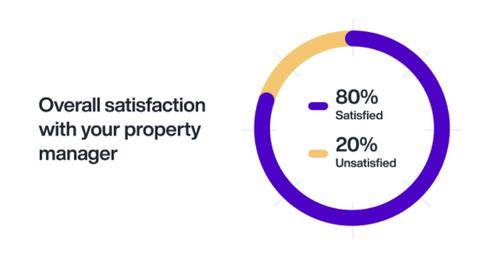
Everyyear,AppFoliopublishestheRenterPreferences reporttogetinsidethemindsofmultifamilyrenters acrossthecountry.We'recuriousaboutwhatmakes themtick,whattheylove,whatthey'relookingforin theirnextplace,howtheyfeelabouttheirproperty managers,andwhy
Whydowebotherwithallthis?Becausewewantto helppropertymanagementcompanieslikeyoursreally understandtheirresidents
When you know what renters want, you can make smarter decisions about everything from which properties to invest in (if you’re an owner-operator) to how to keep your current renters happy. Plus, as you very well know, the multifamily rental market is always changing. What renters wanted last year might not be what they're after now. So, we keep our finger on the pulse with this report, giving you the latest insights to stay ahead of the game. It's all about helping you give renters what they really want, so everyone wins
Here and now, the multifamily rental market is changing, due to cyclicality and (literal) new developments The busy summer leasing season is now behind us, and on the horizon is an influx of newly constructed multifamily buildings. With slower rent growth in the short term, and more competition in the longer term, it’s more important than ever to prioritize renter preferences and satisfaction as a way to maintain occupancy.
Surveying over 2,000 U S renters, the AppFolio Renter Preferences Report provides comprehensive data and actionable insights to help keep your units filled in a changing market Here’s a small taste of what you’ll find in the report.
Satisfaction With Property Management
While most renters are satisfied with their property management company, there is still plenty of opportunity for improvement Elevating resident satisfaction is crucial for retention, particularly as the market becomes more competitive as newly constructed properties begin lease-up Property managers who prioritize resident experience are better positioned to maintain occupancy rates and weather increased competition.
Over the next year, more than one-third of renters anticipate relocating, with their property management experience significantly influencing this decision Notably, renters who express satisfaction with their property managers demonstrate a 30% lower likelihood of planning to move compared to their unsatisfied counterparts
Satisfaction With Communication and Maintenance
Satisfaction with communication emerges as a pivotal factor in shaping overall resident satisfaction with property management, while also significantly influencing move-out decisions.
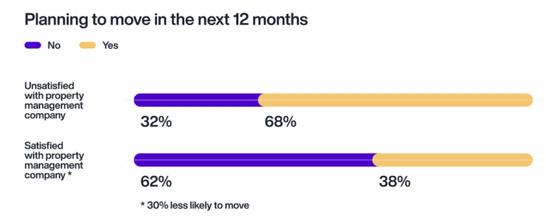


The data reveals a striking correlation: renters who express satisfaction with communication are 25% less likely to be planning to move Moreover, these satisfied renters are four times more likely to recommend their property managers compared to those who are not satisfied with their property management communication practices.
As with communication, maintenance is important to renters, as it directly impacts their quality of life, safety, and comfort According to our data, those satisfied with maintenance are 25% less likely to say they are planning to move and three times more likely to recommend their property management company.
In this regard, I always say “If you have no goal, then you have one goal: stop bad reviews ” How can you do that?
One way is after a service call, or at moveout, send the resident a one-question email asking, “Were you satisfied? Why or why not ” It doesn’t have to be a
sophisticated survey. And if you give your renters the opportunity to vent to you, then they're a lot less likely to take it all the way to the review sites.
Satisfaction With Financial Services
Property management companies can significantly boost renter satisfaction through their financial service offerings. Our research indicates that while the majority of renters value these financial services, they are currently available to only a small fraction of renters This disparity between demand and availability presents a clear opportunity for property managers to enhance resident satisfaction and differentiate their offerings in the market
According to the survey, younger renters, who make up the lion’s share of the renter population in the U S , place even more importance on these financial services, and the importance of these services is significantly higher among users. This suggests that as the availability of these services increases and more renters use them, it will be more important for property managers to offer these services
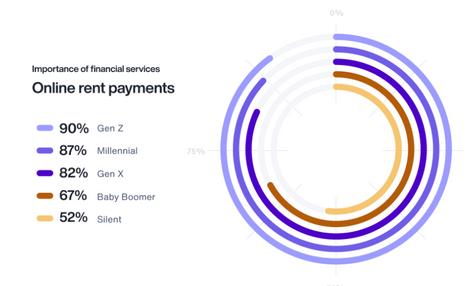
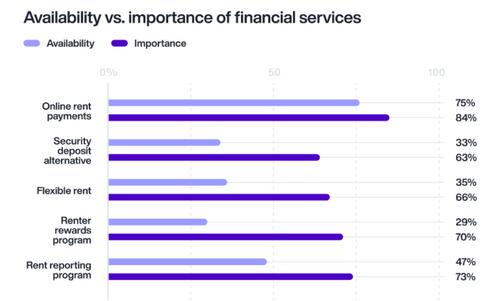
Satisfaction With Technology
Similar to financial services, resident-facing technologies (such as resident portals) are also important services to offer renters Online portals are important to most renters (and this is even higher among younger renters), but this technology is available to just 60% of them

The technology of an online portal was helpful to 95% of renters who used one to complete move-in tasks, such as signing the lease, paying a security deposit, setting up utilities, and buying renters insurance. Signing the lease and paying the security deposit were by far the most common move-in tasks completed via an online portal.
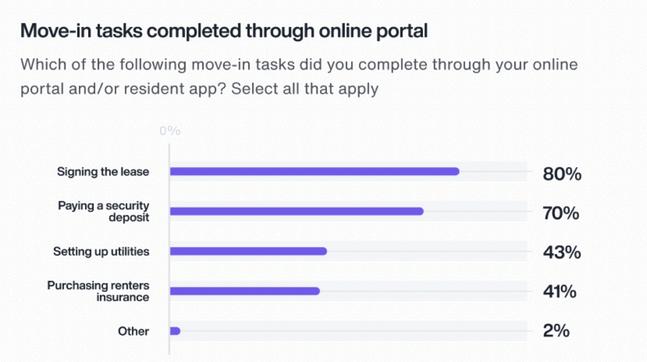
It’s not just residents who benefit from completing these essential move-in tasks through their online portal. For property managers, it alleviates the burden of being a hands-on facilitator, making the process of settling new residents into their homes more efficient
On that note, be on the lookout for enhanced resident onboarding tools Imagine a dashboard where you can track every incoming resident’s move-in status and automate many of the things you know they’re going to call and ask about over the next six weeks things like: “When do I get my key?”; “What day should I move in?”; “What time of day?”; “Who do I talk to?”; “Where do I go?”; “Is there a service elevator?” Soon, you’ll be able to automate all of that in a step by step guide, almost like a pizza tracker You’ll be able to guide your incoming residents through the process and get them ready for the move, preemptively letting them know how to set up utilities, for example
We invite you to check out the full Renter Preferences Report for data-backed insights on how to meet and exceed renter expectations. You can find it here.
Author: Steven Biringer VP, Strategy

Actionable Intelligence and Reputation Risk Management
1 Actionable Intelligence (the other A I ): Seemingly overnight, artificial intelligence became the topic dujour; exciting some, intriguing others, and confusing many. In 2023, I presented “Bold Predictions for 2025” at Apartmentalize where I spoke about the importance of Martec’s Law and cautioned the audience of falling into the “too much too soon tech trap” by sharing a quote from Douglas Adams: “We are stuck with technology, when what we really want is just stuff that works” In analyzing the results from our Biennial Online Renter Study later that year, we noticed a trending apathy among renters around the use of A.I. technology in the multifamily industry.
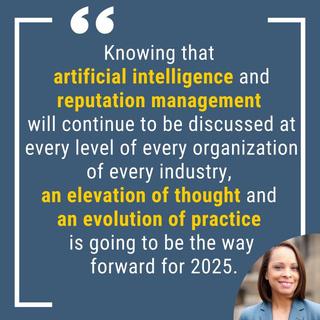
In June of this year, the Journal of Hospitality Marketing and Management confirmed the unintended consequence when the term “Artificial Intelligence” was used to describe a product
The findings of the study indicated that the inclusion of the “Artificial Intelligence” term in descriptions of products and services decreases purchase intention, and that emotional trust mediates this relationship. Findings further suggested that the negative mediating effect of emotional trust on the impact of AI term on purchase intention was stronger for high-risk products, compared to low-risk products.” https://lnkd.in/e5tpgrQZ
“Actionable intelligence bridges the gap between data and practical applications; allowing human expertise to work in collaboration with technology to gain a competitive edge AI + AI equals a synergistic relationship; an idea that’s worth exploring There is a critical need for balance if the ultimate goal is to implement the right technology that aligns with customer preferences and smooths the way for a better customer experience.
2. Reputation Risk Management: As someone who oversaw reputation management strategies as an operator, I realized fairly quickly how exhausting of a practice it was If you’ve ever heard “It takes [fill in the blank] positive reviews to offset one negative review”, you’re probably exhausted too Depending on who you talk to, or where you get your information, the recommended number of positive reviews wildly varies I've heard as little as 5 and as many as 60 The advent of algorithmic changes keeps us all guessing
In 2017, my article entitled “Reputation Is Not Enough”, I wrote: “Renters are in search of a complete and compelling online story; rooted in the resident’s onsite experience and reinforced by an engaged management team. The practice of reputation management (asking for and responding to reviews) is no longer enough.”
We’ve been shouting from the rooftops about the FTC’s guidelines regarding deceptive online review practices since 2021 At that time, much of what we put out to the industry was met with a bit of indifference Unfortunately, some were being held to unrealistic expectations that anything less than 5 stars was unacceptable We also knew that deceptive practices such as review gating, review suppression, and incentivized reviews jeopardized a renter’s ability to gain a complete and authentic depiction of the resident experience
With the announcement from the FTC’s final rule to combat fake reviews and testimonials, the loop has been closed on what businesses can and can not do. The final rule goes into effect October 13, 2024; now is the time to assess current reputation strategies and ensure every team member has been educated to comply with these guidelines. I would also recommend updating employee policies and partnership agreements to minimize your organization’s exposure to risk.
Knowing that artificial intelligence and reputation management will continue to be discussed at every level of every organization of every industry, an elevation of thought and an evolution of practice is going to be the way forward for 2025
Author: Lia Nichole Smith Industry Influencer



